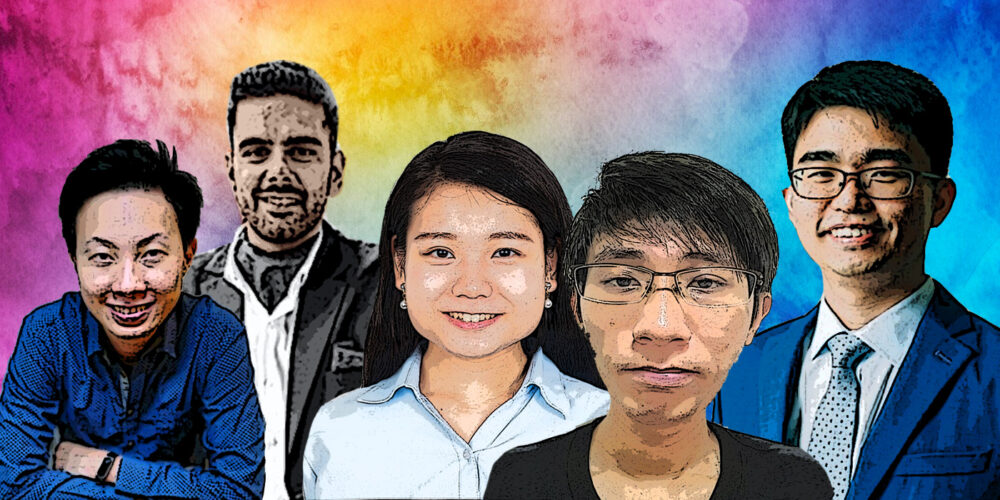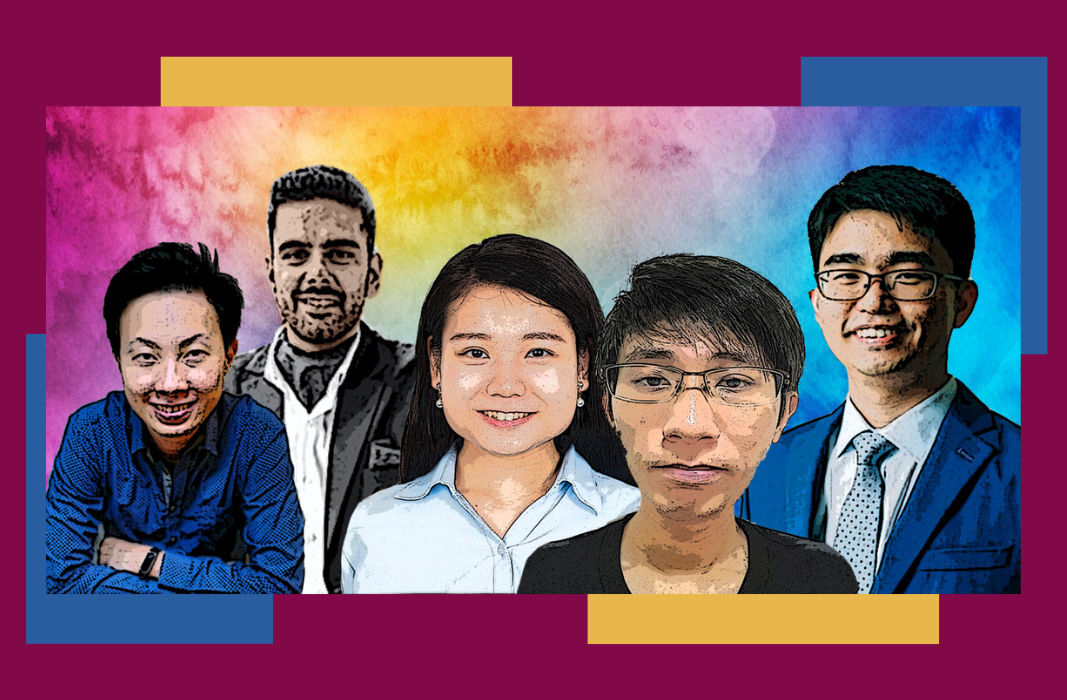It was a day to remember for the 118 graduating Master of Science in Business Analytics (MSBA) students as they took centre stage at the BACS 2022 (Business Analytics Centre Symposium 2022) to present their capstone projects after spending months interning with corporate partners.
Organised by the NUS Business Analytics Centre (NUS BAC), the students also had the opportunity to vie for the coveted Outstanding Capstone Project Award at the virtual event.
MSBA students could choose their capstone projects based on real-world business challenges posed by their corporate partners, with the companies also standing to benefit from the ability to work with emerging young talents.
The students presented their ideas on how their analytics-based solutions solve real-world challenges in various industry sectors, including healthcare, finance, retail, travel and logistics, to a panel of 20 industry practitioners. In addition, the students were tested on how well they could articulate their ideas, their creativity, and the business impact of their solutions.
The Famous Five
Gino Martelli Tiu, Woo Jiansheng, Sahil Sharma, Yu Wenxi and Lam Yan Tung who won the Outstanding Capstone Project Award for their projects that brought impactful value to the respective corporate partners.

From left: Jiansheng, Sahil, Wenxi, Yan Tung and Gino
For Gino’s project, he sensed an opportunity when he saw his corporate partner, an e-commerce specialist, face a growing number of product returns. He then implemented a machine-learning model that predicts the probability of a return happening. As a result, the management would have insights into which intervention strategies they could use.
“The capstone journey has allowed me the space to experiment on how to combine newly acquired data skills alongside consulting competencies to effect measurable change,” said Gino on his project experience.
Jiansheng’s project is a text-mining platform that draws insights from negative reviews about his corporate partner, a travel industry member. “Wheelchair accessibility may not be relevant to most visitors, but for those who use a wheelchair, having a wheelchair-friendly route can be the differentiating factor between a pleasant experience and a nightmare,” he explained.
Solving business problems with machine learning
Sahil worked with his healthcare partner to install a machine-learning system that can automate the assignment of medical codes to different medical cases. Previously, a single case would take an experienced medical expert some 20 minutes to classify.
“The idea of working on medical text and patient data and being allowed to work in the healthcare industry in the current times sounded exciting. Not only did I gain tech insights into the industry, but I also connected with some talented people at corporations I worked with,” said Sahil.
Wenxi developed a machine-learning platform that helps marketing teams gain insights into existing customers’ ordering behaviour. The team would then be able to engage in customer follow-ups in a more targeted manner.
“Through my business stakeholders, I learned much deeper about which areas need more value-adding and solutions in a business context. Like many other projects we have gone through during coursework, competitions and innovation challenge, the capstone project is another great example which offers us an industrial lens,” said Wenxi.
For Yan Tung, he developed a deep-learning model to detect potential adverse drug events (ADEs) from electronic health records. Healthcare professionals do ADE reporting manually, and there is a high degree of under-reporting of such events. The AI-driven approach promises a higher discovery rate of ADEs.
“My biggest takeaway was the exposure to the healthcare industry which I have always been passionate about, and the analytical skills I honed through the project. I look forward to applying what I learned from the capstone project and the MSBA classes at my new job,” said Yan Tung.
Impressed Judges
The judges praised the students’ approach to solving real-world business challenges. “It’s impressive to see the students’ ability to locate valuable and sometimes niche business problems and solve them with profound solutions. In addition, the diversity of problem sets and solutions presents a great mix which points to a good program design to equip students all-roundedly,” said Jamie Fan, Data Science Manager, Trust and Safety, TikTok, and a member of the panel.
“The students work are of high quality, very well thought through and well-articulated in terms of problem statement and the impact of using analytics. Great effort by all the students and I am very sure they will bring their learnings back to their organisations and deliver huge impact. And the students will absolutely be well sought after in the industry,” said Chiang Yoke Fun, Senior Vice President, AI, Analytics and Sensemaking, ST Engineering, and a panel member.
Associate Professor James Pang, Co-Director of the NUS Business Analytics Centre, congratulated all students on their hard work and showed appreciation to everyone who made the event possible.
“The students presented their works of labour from their capstone internship, where they worked on used cases, proof of concept and real business problems. They also picked up useful skill sets, such as managing stakeholders and working with limited resources. I would also like to thank the internship supervisors, academic supervisors, staff and classmates for supporting the students and their capstone projects,” said James.




